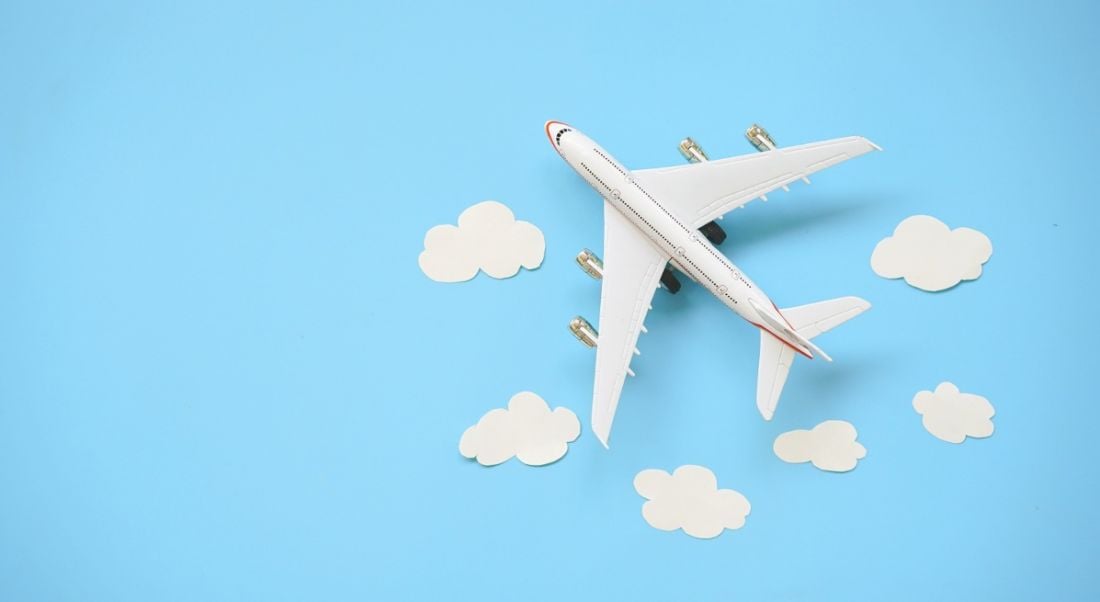Jeffrey Greene of William Fry explains what employees can expect if they travel abroad during Covid-19 and what employers will need to consider.
Do you have plans to travel outside Ireland while Covid-19 restrictions continue? How will that impact your wages? Do you have to let your boss know when you’re visiting another country? Jeffrey Greene from the employment and benefits team at William Fry answers these questions and more.
1. Can you travel during Covid?
The Government’s international travel ‘green list’ was published on 23 July, outlining countries you can travel to during the pandemic without having to restrict movements for 14 days after your return to Ireland. The list was revised on 4 August and now includes Estonia, Finland, Greece, Greenland, Hungary, Italy, Latvia, Lithuania, Norway and Slovakia.
“Although official advice remains that the safest thing to do is not to travel abroad, publication of this list may mean more employees will now travel abroad,” Greene said. “Given the heightened risk that foreign travel poses to workplaces and employers’ responsibilities under the Return to Work Safely Protocol, employers may attempt to restrict annual leave or insist upon further leave being taken before returning to the workplace.”
If you’re receiving a wage support such as the Pandemic Unemployment Payment (PUP), will this be impacted if you choose to travel to one of these countries? “After initially stating that those in receipt of the PUP would be disentitled to the PUP if they travelled abroad, the Irish government has since made a U-turn on this position on 29 July,” Greene said.
“The Minister for Social Protection announced that those in receipt of the PUP would be able to travel to another country on the green list, and non-green list countries in cases of ‘essential travel’. Similar to the current position regarding Jobseeker’s Allowance, where someone in receipt of PUP is travelling to a non-green list country for non-essential reasons, or they are leaving Ireland permanently, they will forgo their entitlement to the PUP.”
2. Do you need to notify your employer?
Although privacy around reasons for annual leave is expected in workplaces, Covid-19 has somewhat changed that. Some employers may now need to ask employees to confirm if they have foreign travel plans. Return-to-work forms might require employees to outline any changes to personal circumstances and some annual leave policies have been amended to make notification of planned foreign travel the rule rather than the exception.
“Employers generally cannot refuse an annual leave request simply because an employee is going abroad on holiday,” Greene said. “However, as current Government advice is not to travel abroad, the overriding requirement for the employer to keep the workplace safe may impact on returning employees.
“Although not encouraged, employees planning green list holidays are likely unaffected as they can return to work as normal immediately on their return. For those planning non-green list holidays, while the annual leave itself may not be refused, working location and pay may be affected.”
3. How will self-isolating after travel affect your wages?
Coming back to Ireland after visiting a country not on the green list requires individuals to self-isolate for 14 days. This means that an employee can’t go to work. If they can work remotely, they might be able to do that at the discretion of the employer.
“However, where employees required to self-isolate cannot work remotely, employers will typically be reluctant to pay employees who have effectively ‘brought this upon themselves’,” Greene said. “This is particularly the case where the employer has warned employees in advance that self-isolation upon return from a non-green list country will not be paid.
“In most cases, this period of restricted movement would also not qualify an employee for the Covid-19 Enhanced Illness Benefit payment or any sick-pay entitlements offered by employers.
“Last month, for example, the Department of Public Expenditure and Reform issued guidance to all civil and public service employees stating that additional annual leave or pre-approved unpaid leave would be required for the 14-day period of restricted movement upon return from non-essential travel.”
4. What if the green list changes while you’re away?
The green list is currently being reviewed every two weeks, leaving a narrow window for change if you have international travel planned. If an employee is in a green-listed country that is removed from the list while they’re visiting, they will need to self-isolate for 14 days when they return to Ireland.
“Where the employee can work remotely, an employer may not have an issue with this,” Greene said. “But where an employee cannot work remotely, the employer should make clear in advance of the employee leaving that any change to the green list is at the employee’s own risk.
“The basis for this is that the Government’s advice is that foreign travel is still not encouraged despite the green list being published.”
5. What do employers need to consider?
The key things companies must now consider include whether they will continue to pay salaries as normal if employees cannot work remotely while self-isolating, whether they will allow voluntary annual leave to cover the self-isolation period, or whether they will impose a period of unpaid leave during self-isolation.
“The most suitable option is dependent on the specific leave polices, the objective business needs and the risks identified in risk assessments by the employer,” Greene said. “Of crucial importance, however, is that employees are made aware in advance of the potential repercussions for foreign travel that goes against public health advice and, where necessary, that employers update their policies to cover this.”
In the end, Greene explained, employers need to decide the approach they’ll take to staff travel plans. If annual leave will be affected by the pandemic, it will need to be outlined clearly in the company’s Covid-19 response plan and communicated clearly to all employees.




